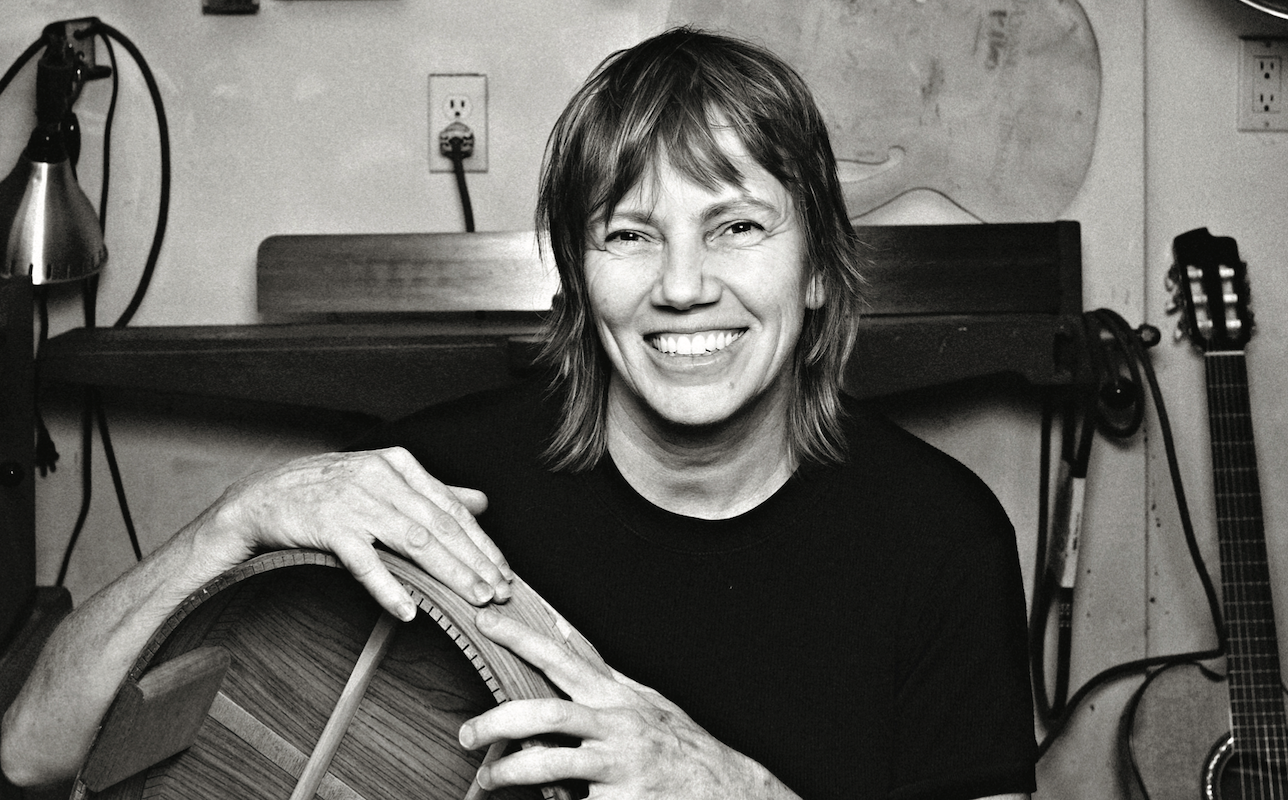Thanks to the pandemic, the Olympic Games in Tokyo will be unlike any before them
By Peter Feniak
Though often troubled, the Olympic Games remain one of the world’s most fascinating enterprises. Postponed for a year due to the pandemic, the Summer Olympics—still branded “Tokyo 2020”—draw near fraught with uncertainty.
Scott Russell, the primetime host for CBC-TV’s blanket coverage of the Tokyo Olympics and subsequent Paralympic games, also in Tokyo, is deep into his preparation.
Russell brings to the job expertise, admiration for the competitors, and a special fascination that began when he was a youngster at Kilcoo Camp on the shores of Gull Lake, near Minden, ON. He remembers how camp became an Olympic village: “In August at Kilcoo, we had our mini-Olympics. Camp shut down. We decorated the baseball diamond like an Olympic stadium. The camp was divided into teams, embassies. Our director, the late John Latimer, made a big deal out of it. That’s where I first became involved with this idea of the magic of the Olympics.”
Two decades later, he found Olympic magic again: “My first games were in Seoul, South Korea, in 1988. I was going to a place that was completely unknown to me. And I learned that this is not just the world’s biggest sporting event—this is the greatest recurring spectacle on the planet. Nothing else attempts to gather that many people from every race, faith, gender, orientation, and circumstance into one place at one time to demonstrate what is humanly possible. To see the Canadian team march in at the opening ceremonies… it’s absolutely thrilling.”
Summer or Winter Games, it’s always stirring to witness the world’s nations walking together in an upbeat spirit of sportsmanship. It may be especially so this summer in Tokyo. In the slowly receding shadow of a global pandemic, the Japanese organizers hope staging the games will be a testament to human resilience.
These Olympic Games (July 23 to August 8) will be very different from others. Japan’s vaccination rate has been low. Safety concerns have dictated that international spectators can’t travel to Japan. Testing and masking will be a constant for athletes and coaches. Russell and most of the large CBC team will have to cover the games remotely—from 13 time zones away. And the Olympians, who normally follow careful lead-up schedules of training and competition, have had to patch together their preparations.
That likely means upsets, disappointments, and unexpected glory. Some are already calling them The Unpredictable Games. Russell points to Andre de Grasse, the gifted sprinter from Scarborough, ON, who is one of Canada’s great medal hopes: “I spoke with him just yesterday. He’s training in Jacksonville, Florida, and he’s obviously excited about what could happen in Tokyo. But he said, ‘I don’t know much other than that.’ There’s this uncertainty that pervades all of the athletes we talk to. We know that they’re desperate to get back to competition, but they haven’t had any major international competition in more than a year. They’re looking for answers, just like the rest of us. They just want to get back to the field of play. That’s their overwhelming concern.”
Canadian athletes have competed at the Olympics since Athens 1896, the first games of the modern era. The first Winter Games were in 1924 in Chamonix, France. Add up the medals from both Winter and Summer Games, and Canadians have gone to the podium more than 600 times. The most recent Summer Games (Rio de Janeiro 2016) saw Canadian athletes earn an impressive 22 medals in events from swimming, track and field, cycling, and wrestling to soccer, gymnastics, rugby, rowing, and equestrian. The then 16-year-old swimming sensation Penny Oleksiak won four gold medals, a Canadian first. The Olympic creed declares that it’s an honour simply to compete; nevertheless, spurred by Canada’s Own the Podium investment-in-athletes initiative, there promises to be plenty of “Go, Canada!” this summer.
Russell’s reporting on our athletes— in blogs and tweets, and on CBC-TV’s weekly Road to the Olympic Games with co-host Andi Petrillo, is ongoing. CBC will also broadcast the Beijing Winter Games in 2022 and the Summer Games in Paris in 2024. Russell knows the demands of anchoring Olympics coverage.
“You’re on-air for seven hours at a time, covering a multitude of sports. You’d better be prepared or you’ll be exposed very quickly. If you’re not nervous doing an Olympic Games, it’s time to give up. These are big events. It’s tough sometimes to control your emotions. You can never be a cheerleader, but you can certainly be passionate and excited about what you see before you. How can you not be excited, as I was at the Bird’s Nest [the stadium for the 2008 Beijing Olympics], when Usain Bolt ran 9.69 [seconds in the 100-metre dash] in front of 95,000 people? That’s just excitement. And you’re going to say, ‘Wow! Have you ever seen anything like that?’”
Great athletes bring great thrills and intriguing possibilities. Canada’s Andre de Grasse is certainly in contention for a gold medal. So are beach-volleyball world champions Sarah Pavan and Melissa Humana-Paredes; swimmers Kylie Masse, Maggie MacNeil, and Oleksiak; canoeist Laurence Vincent Lapointe; high jumper Derek Drouin; trampoline medallist Rosie MacLennan; and more. Watch out for Canada’s great women’s soccer team, top golfer Brooke Henderson, and (provided she’s healthy) tennis champion Bianca Andreescu.
The competition is daunting, though. Andreescu might have to face Japan’s tennis superstar, Naomi Osaka. De Grasse will line up against American sprinters Justin Gatlin and rising star Noah Lyles. The list of challenges goes on. The televised events will be compelling; the pandemic-driven circumstances, unprecedented. Athletes will be kept in bubbles for safety (as they have been in pro sports); the traditional roar of the crowd will be muted. Japanese fans, if they’re admitted, will be forbidden from chanting and flag-waving.
As always, questions will abound. Will top athletes struggle with time changes and high on-field temperatures? (Japan can be very hot in the summer.) Will testing for performance-enhancing drugs (PEDs) be strict and accurate?
Looming above all is the reputation of the International Olympic Committee (IOC) itself, often criticized for a lack of transparency that can hide some members’ cronyism and financial corruption. Russell’s view: “The Olympics are controversial, and I’ve often said the Olympics are not perfect. You have to distinguish between the Olympics and the people who run the Olympics—the IOC—that’s where the controversy comes in. The principle of the Olympics is pure and it’s sound and the values of the Olympic movement are unassailable.”
“Faster, Higher, Stronger”
Baron Pierre de Coubertin, the founder of the modern Olympic Games (1896), saw reviving the Olympics as a way to promote education and values through sport and world peace. (The French educator was inspired by earlier discoveries at the ancient games’ site at Olympia, Greece.) The Olympics’ motto, “Citius, altius, fortius” (“Faster, higher, stronger”), is supported by core Olympic values of “excellence, friendship, respect.” The Olympic creed, suggested by American Episcopal Bishop Ethelbert Talbot in 1908, states: “The most important thing… is not to win but to take part, just as the most important thing in life is not the triumph but the struggle… to have fought well.” Though interrupted by two world wars, shocked by the terrorist violence at Munich 1972, and undercut by boycotts, the discovery of athletes using PEDs in recent years, and now a global pandemic, the games continue to reach for those goals.
To do justice totoday’s Olympic Games, broadcast hosts need knowledge, quick thinking, and endurance. Joining Russell on the anchorteam are Petrillo (morning host), The National’s Andrew Chang and former world champion hurdler Perdita Felicien (afternoon hosting), and diving medalist Alexandre Despatie and Heather Hiscox of CBC News, who will anchor through the night (Tokyo’s daytime). Russell’s job will be to pull it all together in prime time. As one of Canada’s most respected sports journalists, Russell has worked on 14 Olympic Games and has hosted the Pan-Am games (Toronto 2015), several Commonwealth Games, and the FIFA World Cup.
Born in Oshawa, ON, in 1958 to Dr. Scott Russell and Elizabeth Russell, he earned an Education degree at the University of Western Ontario and then taught high school in Owen Sound (where he also coached volleyball and basketball). Returning to university, he was drawn towards the energy of athletics:“I went back to do my master’s in journalism and I was exposed to a really vibrant sports community. The Western Mustangs were the national champions in football. Darwin Semotiuk, the coach of the Mustangs, and later, Coach Larry Haylor were very good to me. As a journalism student, I started covering the Mustangs. The atmosphere was bright. It was colourful. There was a lot going on and, frankly, it was way more interesting than covering city hall or something like that.”
Russell’s broadcasting career began with the CBC in Prince Edward Island. Sports—especially amateur athletics in Canada—soon became his focus. He has served on both sports and advisory boards. He’s the author of three books (two on hockey, one on curling) and has won both a Gemini Award and a Canadian Screen Award for his on-camera work. Presented with an honorary degree by Nipissing University, he was praised for an “unparalleled enthusiasm for amateur sport [that] shines through in every aspect of his work.” He continues to be inspired by Canadians who broadcast the Olympic Games before him: “Don Wittman brought a real excitement for track and field to the Canadian public—in particular, Donovan Bailey’s gold medals in 1996. Steve Armitage has been a mentor of mine, the way he calls swimming at the Olympic Games with [ex-Olympian] Byron MacDonald, it’s absolutely fantastic. Terry Leibel, whom I got to work with when I did show-jumping at Spruce Meadows, was a tremendous broadcaster.
“And I have to say that Brian Williams was a wonderful Olympics host. People called him Mr. Olympics in Canada. He brought this tremendous excitement and richness to the Olympic Games. It had gravity when Brian was hosting.” Williams left CBC to host the Vancouver Winter Olympics (2010) and then the London Summer Games (2012) for CTV, which had outbid CBC for the rights.
Russell has also seen change among Canada’s sports competitors: “The majority of the Olympic athletes we deal with now have agents who are looking to secure sponsorship agreements. Very few of those athletes are going to win medals and secure their futures. I guess it’s lost a little bit of its innocence for me. And yet there are still those stories of athletes struggling to get there. This is their life’s work.”
“Tokyo wants to make these games a symbol of what can be done even during difficult times. And athletes have demonstrated over the years how resilient they can be, how they can overcome things. That’s the thing about the Olympics: it’s not about the victory, it’s about reaching above and rising above. I’m cautiously optimistic. We don’t know what’s going to happen, but let’s see who wins the race.”
Photo courtesy of CBC






